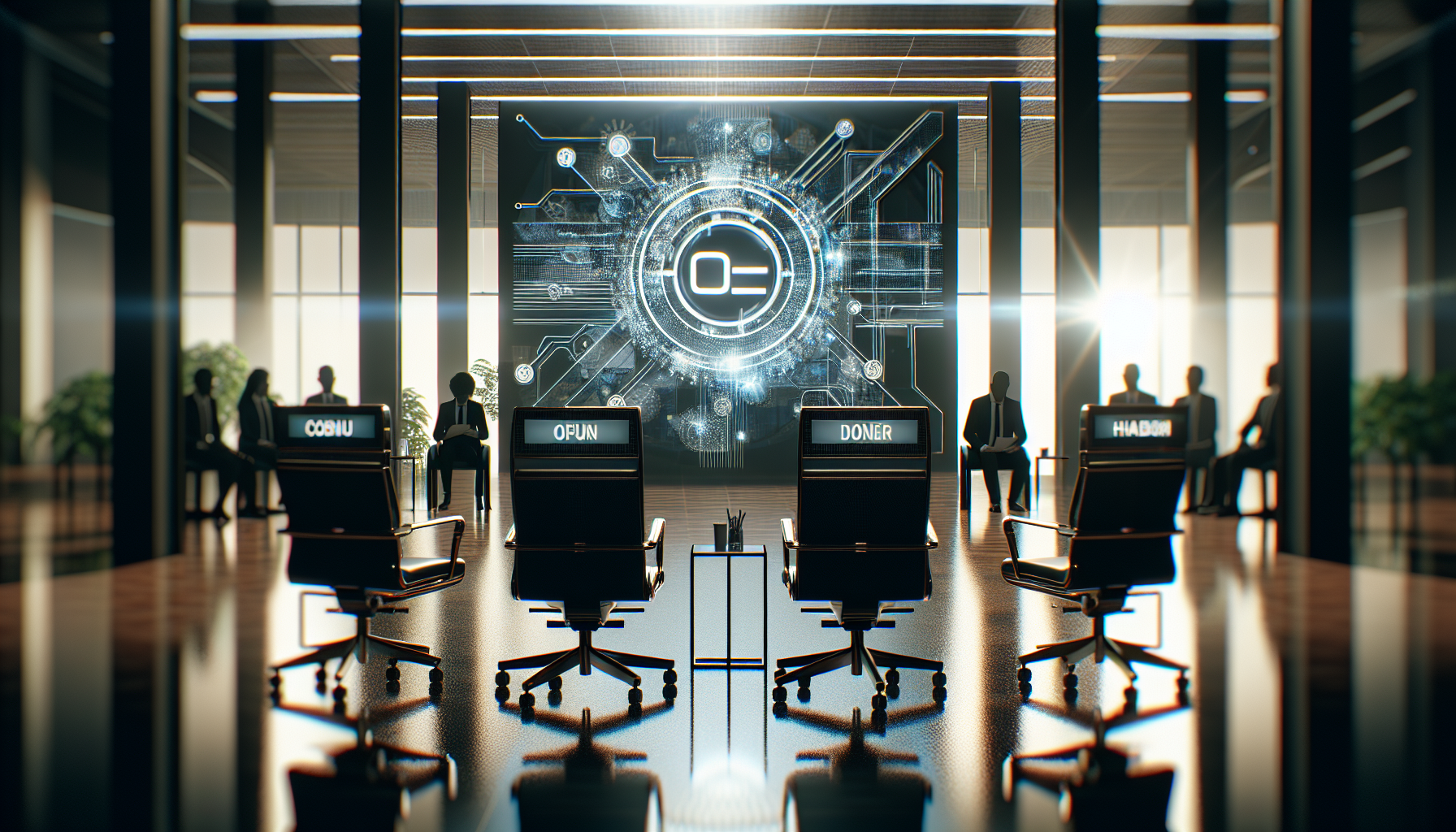OpenAI Loses Key Leadership Trio

Leadership Shake-Up at OpenAI: Key Departures and Strategic Implications
In a significant turn of events for the artificial intelligence realm, OpenAI is witnessing a shake-up at its top leadership levels. Greg Brockman, a pivotal figure and one of the 11 co-founders of OpenAI, is embarking on an extended leave of absence. Concurrently, John Schulman, another co-founder and significant contributor to the firm’s strides in AI, has transitioned to Anthropic, a direct competitor founded by former OpenAI researchers. Adding to this upheaval, Peter Deng, an essential product leader, has also departed the company.
Greg Brockman: An Extended Leave of Absence
Greg Brockman, who has played a foundational role in shaping OpenAI’s vision and business strategies, is stepping away temporarily. Brockman’s leave raises questions regarding the continuity of leadership and the potential strategic shifts that OpenAI might undergo in his absence. Brockman’s engagement in critical projects and decision-making processes at OpenAI has been instrumental in pushing the frontiers of AI technology.
His leave could be due to various reasons — personal, professional, or even strategical. While the specifics remain under wraps, this development urges us to reflect on his contributions. Brockman has been a driving force behind initiatives that expand the capabilities of OpenAI’s language models, including the famous GPT-3, which has revolutionized natural language processing and human-computer interaction.
John Schulman Joins Anthropic
John Schulman’s departure to Anthropic is another major upheaval. Schulman was not only a co-founder but also a leading researcher who steered many of OpenAI’s advancements in reinforcement learning. His move to Anthropic, a company created by ex-OpenAI scientists, signals an intriguing shift in the competitive landscape of AI.
Anthropic focuses on creating AI systems that are inherently interpretable, transparent, and reliable. The firm emphasizes the ethical considerations and safety measures necessary when deploying such powerful technologies. Schulman’s expertise aligns perfectly with Anthropic’s mission, potentially giving them a substantial advantage in developing dependable AI solutions.
Peter Deng’s Exit: Potential Impact on Product Development
Peter Deng, vital to OpenAI’s product vision and execution, has also decided to part ways with the company. Deng was influential in steering product strategies and ensuring that OpenAI’s innovations reached practical, user-centric applications. His departure introduces further challenges in maintaining the momentum OpenAI has gathered in product development cycles.
Deng’s role in launching and refining products such as the popular language model interfaces and developer tools showcased his strategic insight into user needs and market demands. His absence might cause a momentary void in the cohesive execution of ongoing projects, affecting timelines and delivery expectations.
Strategic Implications and Industry Impact
The departure of such key figures invites speculation on OpenAI’s strategic direction. The firm may need to recalibrate its leadership structure, intervening in recruiting or promoting substitute talents to carry forward its vision. Each of these leaders brought unique skills and perspectives that collectively drove OpenAI’s innovations and market position.
For instance, Brockman’s strategic foresight has been crucial in securing investments and partnerships crucial for scaling OpenAI’s ambitions. Schulman’s methodological approach to AI safety and interpretability continually reinforced OpenAI’s commitment to responsible AI deployment. Deng’s product acumen enabled seamless integration of AI capabilities into market-ready solutions.
This restructuring phase could either propel OpenAI into exploring new avenues of growth, leveraging fresh talent and ideas, or risk stagnation if the leadership gaps are not adeptly filled. Such transitions inevitably impact ongoing projects, potentially slowing progress as new leaders acclimate to their roles.
Moreover, Schulman’s move to Anthropic illustrates the increasing fragmentation within the AI research community, emphasizing the growing importance of having diverse companies championing varied aspects of AI safety, transparency, and robustness. This fragmentation might foster innovation through healthy competition, incentivizing each company to push the boundaries further.
Looking Ahead: OpenAI’s Future Trajectory
Despite these changes, OpenAI’s core mission and innovative spirit are likely to endure. The company has a track record of resilience and has often responded to challenges with groundbreaking advancements. Establishing a sustainable leadership model will be vital in maintaining their trajectory of pioneering innovative AI solutions that serve humanity beneficially.
OpenAI might harness this period of transition to strengthen its inclusive talent pool, fostering a culture of collaboration and innovation that can sustain its mission. Embracing diverse perspectives could reinvigorate their strategic pursuits, enabling the development of sophisticated AI technologies.
**Use IntelliAgente for Enhanced Customer Support and Sales**
As we navigate the changing landscape of AI technology, it’s crucial to leverage reliable tools for enhancing customer support and sales operations. **IntelliAgente** offers an innovative solution that can streamline customer interactions, providing efficient and accurate responses that boost customer satisfaction and sales conversions. Contact us to discover how IntelliAgente can transform your business communications.
Subscribe to our newsletter for the latest updates and insights on AI developments.
Fonte: https://www.theinformation.com/articles/trio-of-leaders-leave-openai
